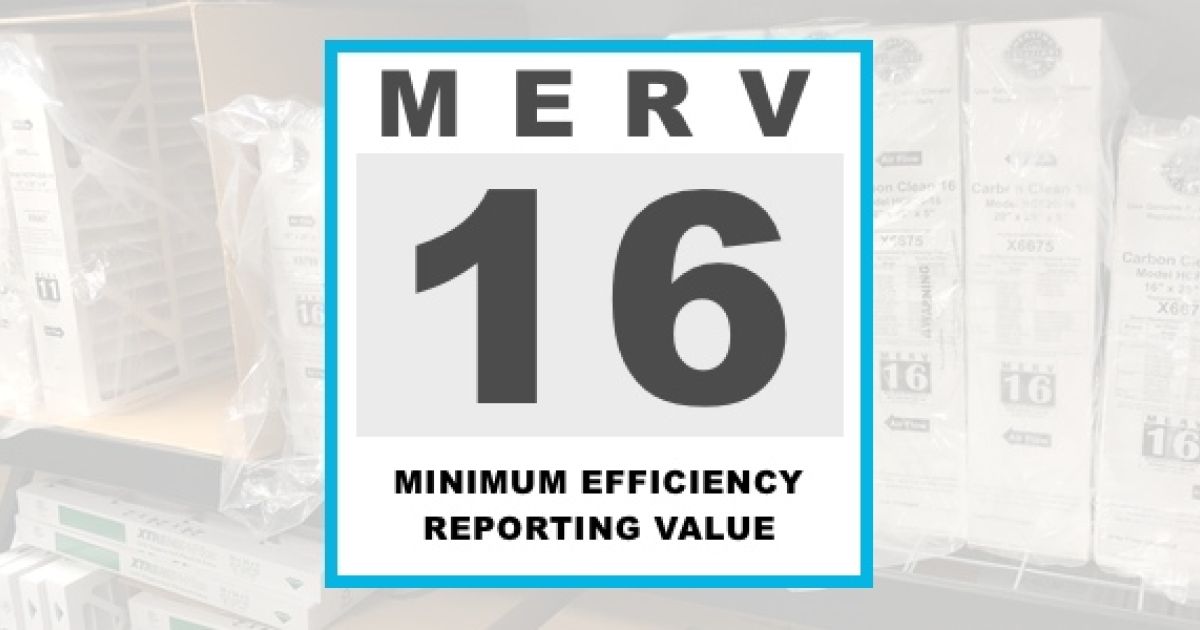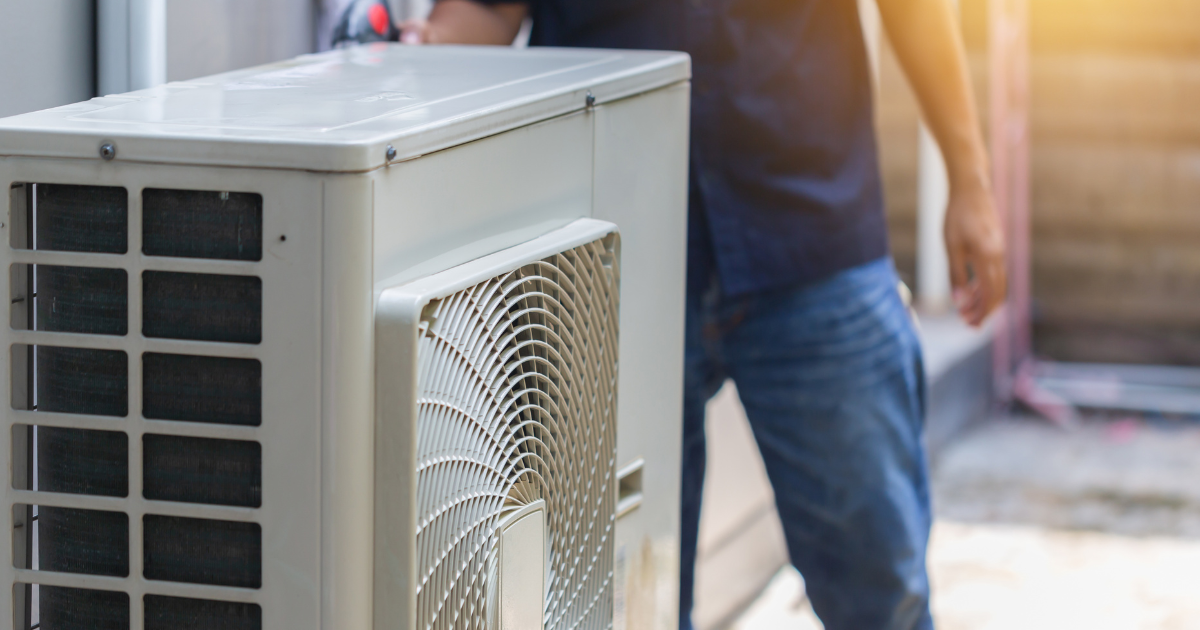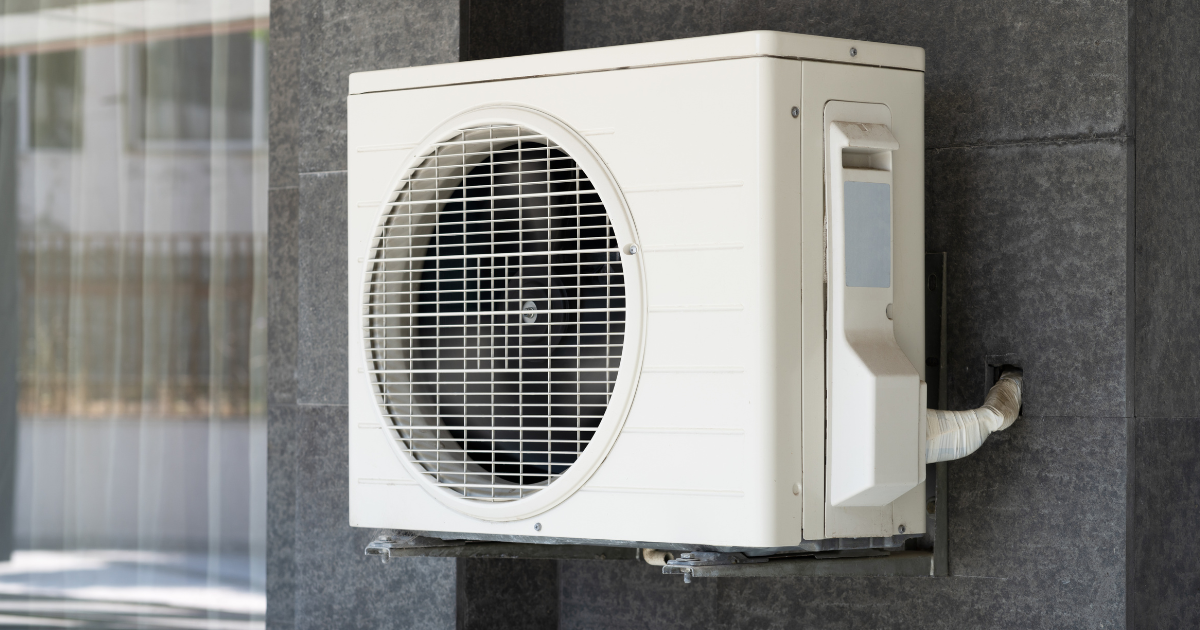Why is a Good MERV Rating Important?
It’s important to maintain your air filters because they are the first point through which your residential air flow passes before it is dispersed throughout your home. These air filters are responsible for capturing the debris, dust, and hair in the air, help to improve your overall air quality, and can even help improve your personal health, too.
A majority of people are under the impression that outdoor air is the only element they need to worry about; but the truth is, indoor air quality can be a serious problem too. In fact, studies show that indoor air is up to ten times more polluted than outdoor air because of its exposure to and blending with to things like cleaning materials, pet dander, dust, and mold.
The key to protecting yourself from all these contaminants is to choose the correct filtration system… but how do you know which one is best for you and your home? That’s where you can use the Minimum Efficiency Reporting Value (MERV) system.
What is a “MERV” Rating?
MERV is the guide that is used to determine how successful a filter is at controlling the flow of unwanted particles into your home. Typically, the MERV scale ranges on a rating scale from 1 to 16. The higher the MERV rating, the better protected you are against contaminants.
The American Society of Heating, Refrigerating, and Air Conditioning Engineers (ASHRAE) designed the MERV rating system to help determine the efficiency of filters within an HVAC unit. During the testing phase, they expose filters to a range of common particles of various sizes, from mold spores and bacteria to dust mites and pollen. This helps to determine the filter’s effectiveness in keeping harmful elements and contaminants out of your home.
On average, a residential temperature control system with a rating between MERV 7 and 12 should be able to remove most airborne particles. These numbers are typically higher for clinical areas like hospitals.
Choosing the Right MERV Rating
When choosing an air filter, a MERV rating can help you to determine which options will give you the most protection against allergens, bacteria, and contaminants. For instance:
- MERV Filters between 1-4: Filters with a rating between 1 and 4 will do little to stop harmful particles from entering the home. These filters are designed to trap larger particles like carpet fibers, dust mites, and pollen.
- MERV Filters between 5-8: Filters with ratings between 5 and 8 are sufficient for some homes because they can trap particles that are as small as 3 microns, including animal dander, dust mite droppings, and mold spores.
- MERV Filters between 9-12: Perhaps the preferred option for most residential spaces, these filters are almost as effective as “HEPA” filters when removing particles from indoor environments. They’re great for homes with people who have allergies, asthma, or other respiratory conditions because they can capture particles as small as a single micron.
- MERV Filters 13 and up: If a filter has a rating higher than 13, it indicates that it’s exceptionally efficient and capable of trapping minute particles like bacteria and viruses. Usually, these appear in specialized HVAC systems, like those located at hospitals or manufacturing plants. Most residential systems won’t accommodate high-level filters like these without modification.
It’s tempting to assume that the highest MERV rating would offer the cleanest air quality – but that isn’t always the case because the MERV rating scale doesn’t follow strict logic. Therefore, it’s best to speak with a professional because they can recommend the most appropriate MERV filter for your home.
Caring for your HVAC Filter
Your air filtration system is crucial for two reasons. First, choosing the best filter helps to protect your system from airborne particles that might damage your system’s essential components, which could lead to overheating and potential damage. And second, choosing a filter with the right MERV rating ensures that you are receiving the best quality of air for your own health.
It’s important to remember that the MERV rating only indicates the minimum ability a filter has to capture airborne particles. Over time, filters begin to fill with dander and dust, which can render them unable to stop additional contaminants from passing through. A dense filter will quickly fill with debris and must be switched out often to keep your system working properly. But how often should you change your air filters?
Generally, most residential users will switch out their filters at the beginning of the season, but other factors like pets, people, and the pollution in your area could affect this frequency. Consult a professional about when and how you should switch out your filters so that you can maintain the best air quality in your home.
Remember that you’ll need to ensure that your HVAC can accommodate specific types of filters, and that choosing a higher rated filter can ultimately mean more maintenance. Our experts at Bob Jenson can offer assistance on choosing the perfect air quality filtration solution for your residential HVAC system depending on the unique needs of your home.

Bob Jenson
For over 45 years, Bob Jenson has been providing quality heating and air services to the San Diego community.
Request Service
Please fill out the form below to request an estimate or schedule service.
"*" indicates required fields







